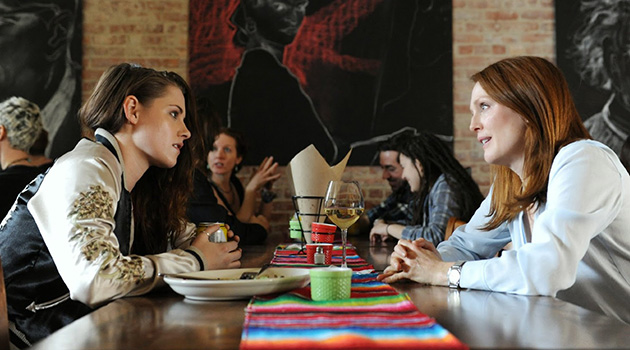Film Discussion: Still Alice

People have been getting sick and dying for as long as there have been people, of course, and storytellers have enjoyed laying out the grisly details. And since the beginning of movies, film storytellers have been winning Oscars for stories of mortality. Now, it’s possible that the aging of the Baby Boomers’ parents—and (increasingly) their own battles with lethal forces—have made modern movies an even greater place for tales battles with The Reaper.
I haven’t seen Still Alice yet. I prefer to watch it right along with everybody and then jump into the discussion while the movie is still running around my brain. But I know that Julianne Moore won her Oscar for playing a very smart person in a very language-intensive field of academia who is hit with early onset Alzheimer’s Disease.
I’m at an age when most diseases are familiar to me from the travails of my own friends and relatives—too close a distance for comfort—and conversations among my acquaintances often turn in the direction of symptoms and personal anecdotes of medical paranoia.
While it’s not really my favorite topic, becoming casualties is something we all have to think about sooner or later. And tonight seems like a good time to start.
I expect that the formidable Julianne Moore will give us a useful lesson in how to handle the unthinkable. The movie is based on a book of the same name by Lisa Genova, a Harvard grad with a PhD in neuroscience who specializes in novels about people with neurological disorders. So it’s likely that the substance of the film will be firmly based on medical reality.
I hope you’ll join me tonight for a discussion of Still Alice. Newspaper reporters used to say that bad news is good news. And movies are teaching us that medical disasters can make great movies.
See you there?
Paul Goodwin
TMHMG
p.s. Next week we will take a run at something completely different when we discuss The Duke of Burgundy in The Music Hall Loft. The movie has gotten glowing reviews from critics, one of whom asserted that it “proves that erotic cinema can have genuine substance.” We’ll see.
